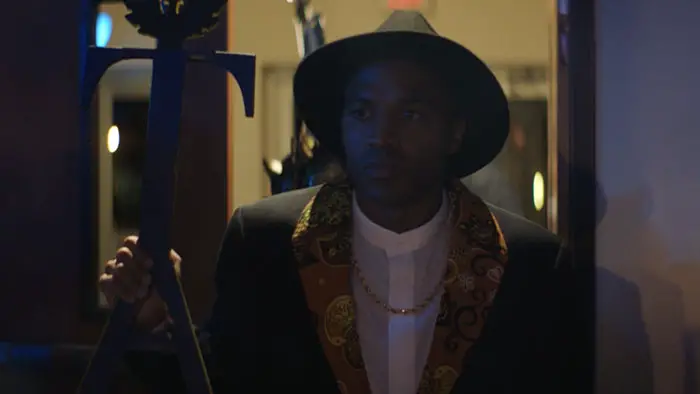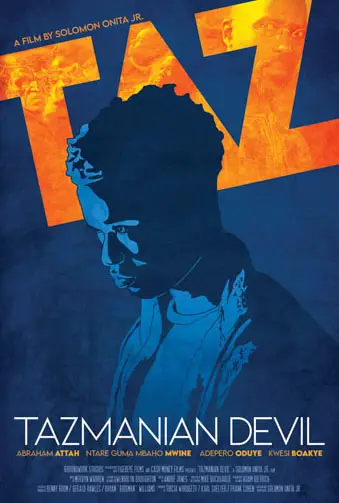
How is dedicating life to God different from, say, pledging for a frat? Both require discipline, abiding by a strict set of rules, proving yourself. Both promise a life of peace and love, devoid of loneliness. Sure, it may be an oversimplification of an intricate subject matter, but Tazmanian Devil does touch upon something deeply intrinsic, just to leave it unresolved.
Take the film’s “dissection” of a frat, for instance. One of the pledges states, “If I drop out, it’s social suicide.” Why do we create our own boot camps to prove our worth/ loyalty to one another? Is it simply a projection of adolescent aggression? A way to trample one’s insecurities with sheer brutality? What values do they instill? How skewed are they? Why are frats and sororities so specific to the US? In what ways do they reflect this country? How do they affect the intelligent, eager young immigrants’ perspective of this country? What is the long-term effect?

“…the central relationship between father and son is underdeveloped.”
I could go on with the questions because Onita Jr. doesn’t. He is skillful when it comes to portraying the fraternity life, with all its posturing and swagger. The director knows how to handle an ensemble cast – a commendable feat in a debut feature. But he’s also prone to extended flashbacks that halt the momentum, as well as turgid melodrama. Most crucially, the central relationship between father and son is underdeveloped.
Allow me a moment of sap: younger generations need to be striving for knowledge, for true companionship based on compatibility, feelings, love. Being beaten into submission to be appreciated by some douchebags sounds incredibly backward to me. So when Julius smiles at the end, proud of his son, I’m left befuddled. Is he happy that Dayo at least found a niche? Does he recognize himself in the boy? Tazmanian Devil subjects its viewer to two hours of hazing, just to pat them on the head at the end and welcome them to the club.

"…glamorizes the very thing it purports to indict."


